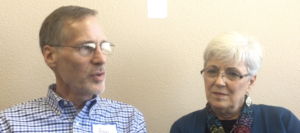 Conducting an effective, successful search for the right senior minister is not something church leaders can afford to leave to chance or happenstance. It depends, in large measure, on adopting a thoughtful, prayerful, and deliberate process. As you consider the search process your church should implement, here are a few matters for your consideration:
Conducting an effective, successful search for the right senior minister is not something church leaders can afford to leave to chance or happenstance. It depends, in large measure, on adopting a thoughtful, prayerful, and deliberate process. As you consider the search process your church should implement, here are a few matters for your consideration:
- A great process does not guarantee a great result. However, a poor process is sure—short of divine intervention—to result in a poor choice. Process is important. A good process—well planned and clearly articulated—is the first step to ensuring a successful search.
- The search process does not begin with looking for candidates. It begins by looking at yourself and your church and your community. Knowing who you are, where you want to go as a congregation, your values and priorities, your ministerial expectations, and the call of God on your church will not only help you communicate clearly about the church with candidates … it will also help you define what kind of candidate is best suited for your church. More is involved with finding a Senior Minister than simply looking for a good speaker. While sermons are important, so is integrity and ministerial passion and theological compatibility and competencies and people skills. The more you understand your own church and where God wants you to move as an outpost of his kingdom, the more you understand who you should be looking for in a Senior Minister. This takes time, of course. Some churches are so eager to find their next minister that they are willing to “marry” almost anyone who catches their eye. But, like all “shotgun marriages,” the probabilities of a long and lasting relationship are slim.
- The search process begins by looking at yourself, your church, and your community.A search process is only as good as the quality of the candidates you surface. Posting your vacancy on brotherhood websites and advertising in brotherhood papers will get you quantities of candidates but rarely results in quality candidates. Relying on members of your congregation to recommend candidates (“Hey, I have a brother-in-law who has preached a sermon or two!”) will garner similar results. You are not looking for people who are looking for a job or happen to know a member of your congregation … you are looking for people who are neck-deep in successful ministry, who have a proven track record of effective work, and who come highly recommended by people whose ministerial judgment you trust. Identifying “people-in-the-know”—those who are positioned to know your church and have personal contact with a range of effective ministers—and asking those people to prayerfully recommend candidates to your search committee is the best way to surface quality candidates. Better to have five quality candidates than three hundred of dubious worth.
- A good process puts emphasis on relationship rather than resumes. There is no short-cut to getting to know candidates, listening to their sermons and reading their writings, having a series of conversations, visiting with them in person, and talking deeply about the important matters in life and ministry. Some things (even some important things) can be learned from a resume. But most of what makes a minister effective cannot be discerned from ink on paper. It requires the time, energy, and emotional investment of a relationship.
- A good process emphasizes relationships, not resumes.A healthy process will result in a recommendation rather than a beauty contest. The old model of finding the “top three” candidates and inviting them to speak to the church on consecutive weekends has so many problems, it’s hard to know where to begin the critique. At the very least, it is a model designed to alienate some segment of the church from the very start (“He wasn’t my choice!”) and to make speaking-and-schmoozing ability a more important criterion in the selection process than critical matters such as experience, character, competence, and compatibility. A healthy process puts a great deal of trust in the search committee; in the many hours of prayer, conversation, and discernment they have poured into the search; in their ability to synthesize a vast amount of information and make a good recommendation to the elders. It assumes that a committee of godly people, dedicated to a long and difficult task, is a more reliable instrument for discerning God’s will than the snap judgments of church members after hearing one sermon and grabbing a few hurried words in the foyer.
Finally, a good search process requires leadership. Elders (or church leaders) must choose well and boldly as they constitute the search committee. The committee will need strong and steady leadership from its chairman (a critical ingredient in the process pie). The committee will need to embrace its mission and recognize the importance of leading the congregation in its search for the new minister and the next chapter in its future. So, to paraphrase Martin Luther: Lead, and lead boldly, and trust the grace of God more boldly still.


